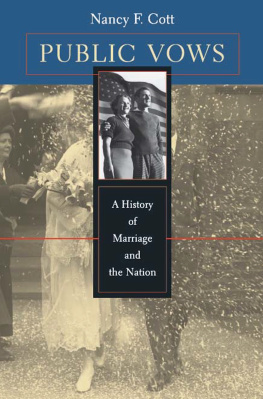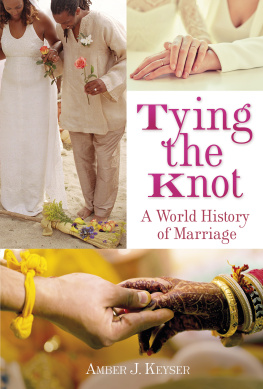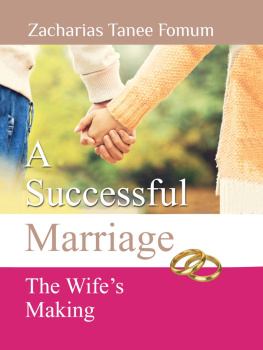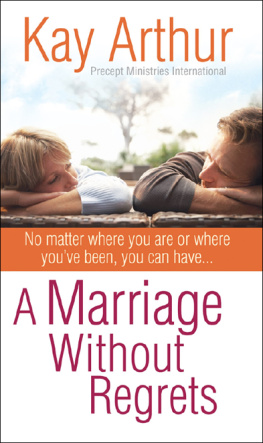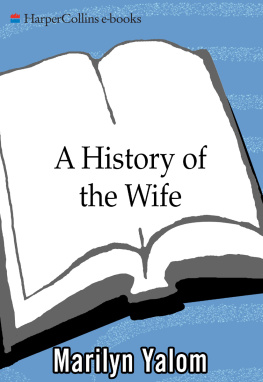acknowledgments
Writing this book has taken far longer than I imagined when I began, and I have accumulated many debts of gratitude along the way, all of which Im delighted to acknowledge, as if they could be repaid in words. First, there are other historians to whose scholarship I returned again and again, relying on it more than individual citations can convey. I am grateful to Linda Gordon, Michael Grossberg, Pamela Haag, Hendrik Hartog, Linda Kerber, Alice Kessler-Harris, Jan Lewis, Amy Dru Stanley, Carol Weisbrod, and Robert Westbrook for inspiring and aiding me with their evidence and ideas. I benefited from the contributions of research assistants: More than a decade ago, Jane Kamensky produced superbly efficient notes on dozens of books; then Jessica Steigerwalds creativity and conscientiousness in research tasks helped me and the project in substantial ways; and I counted on Leah Newkirks intelligence and reliability during my fellowship at Radcliffe. Hearty thanks to them and also to Professor Leslie Rowland, who generously facilitated my research in the Freedmen and Southern Society collection at the University of Maryland, and to Lisa Cardyn, Ariela Dubler, and Beth Hillman, who divined the mysteries of Westlaw for me on crucial occasions. For encouragement at early stages of the project, I am indebted to Linda Gordon, Linda Kerber, and Peggy Pascoe; for stimulating conversations over several years of thinking and writing, I want to thank Reva Siegel. I am grateful to William Deverell, Eric Foner, Alexander Keyssar, and Robert Westbrook for reading parts of the book-in-progress during 1998-99 and giving me crucial feedback. My research and writing were greatly assisted by two grants from the A. Whitney Griswold Fund of Yale University, a National Endowment for the Humanities Fellowship, a Liberal Arts Fellowship in Law at the Harvard Law School, and a Visiting Research Scholarship at the Schlesinger Library of Radcliffe College. I also appreciate the privilege I had in being appointed William Clyde DeVane Professor at Yale for the spring of 1998, which helpedor forcedme to write twelve lectures and thus map out the book.
A fellowship at the Center for Advanced Study in the Behavioral Sciences, a bicyclists as well as a scholars paradise, enabled me to write a full draft in 1998-99. I remain supremely grateful for that opportunity, for the support of the Andrew W. Mellon Foundation, for the helpful advice of the Centers staff (especially Patrick Goebel, Cynthia Bacon, and Jean Michel), and for the wise counsel and sustaining camaraderie of other fellows, especially Jeff Alexander, Alex Keyssar, Hilda Sabato, Jim Scott, and Dan Segal. Neil Smelser, the director of the Center, was the first person to read the whole first draft of the manuscript; he offered generous and astute commentary, as did Lisa Cardyn, Richard W. Fox, Hendrik Hartog, Robert Johnston, Alice Kessler-Harris, Martha Minow, and Peggy Pascoe later. To all, I am obliged for your constructive responses. I gained enormously from the presence of Joyce Seltzers critical editorial genius at my shoulder, bracing and comforting at the same time; my gratitude to her for enlivening the process of writing and publication. Hearty thanks also to Nancy Clemente, whose wit and long experience made her an ideal manuscript editor, and to Jill Breitbarth, a simpatica designer, at Harvard University Press; and to Lynn Walterick, whose scrupulous reading detected and prevented several blunders just in time.
an archaeology of american monogamy
In the beginning of the United States, the founders had a political theory of marriage. So deeply embedded in political assumptions that it was rarely voiced as a theory, it was all the more important. It occupied the place where political theory overlapped with common sense. Rather than being untutored, or what the mind cleared of cant spontaneously apprehends, Clifford Geertz has pointed out, common sense is what the mind filled with presuppositions... concludes. Kinship organization, property arrangements, cosmological and spiritual beliefs give rise to common sense, so that it varies from culture to culture.1 The common sense of British colonials at the time of the American Revolution was Christian; Christian common sense took for granted the rightness of monogamous marriage. Moral and political philosophy (the antecedent of social science) incorporated and purveyed monogamous morality no less than religion did.2 Learned knowledge deemed monogamy a God-given but also a civilized practice, a natural right that stemmed from a subterranean basis in natural law.
Yet at that time, Christian monogamists composed a minority in the world. The predominance of monogamy was by no means a foregone conclusion. Most of the peoples and cultures around the globe (so recently investigated and colonized by Europeans) held no brief for strict monogamy. The belief systems of Asia, Africa, and Australia, of the Moslems around the Mediterranean, and the natives of North and South
America all countenanced polygamy and other complex marriage practices, which British and European travel writings on exotic lands recounted with fascination. Anglo-America itself was set down in the midst of polygamist and often matrilineal and matrilocal cultures. No doubt Christians in Britain, Europe, and America at the time thought monogamy was a superior system, but it had yet to triumph.
As a result, while no one involved in founding the new nation would have disputed that Christian marriage should underpin the society, political thinkers and moral philosophers at the time were conscious of monogamy as a system to be justified and advocated. European political theorizing had long noted that legal monogamy benefited social order, by harnessing the vagaries of sexual desire and by supplying predictable care and support for the young and the dependent. The republican theory of the new United States assumed this kind of utilitarian reasoning and went beyond it, to give marriage a political reason for being. From the French Enlightenment author the Baron de Montesquieu, whose Spirit of the Laws influenced central tenets of American republicanism, the founders learned to think of marriage and the form of government as mirroring each other.3 They aimed to establish a republic enshrining popular sovereignty, ruled by a government of laws, and characterized by moderation. Their Montesquieuan thinking tied the institution of Christian-modeled monogamy to the kind of polity they envisioned; as a voluntary union based on consent, marriage paralleled the new government. This thinking propelled the analogy between the two forms of consensual union into the republican nations self-understanding and identity.
Although the details of marital practice varied widely among Revolutionary-era Americans, there was a broadly shared understanding of the essentials of the institution. The most important was the unity of husband and wife. The sublime and refined ... principle of union joining the two was the most important consequence of marriage, according to James Wilson, a preeminent statesman and legal philosopher. The consent of both was also essential. The agreement of the parties, the essence of every rational contract, is indispensably required, Wilson said in lectures delivered in 1792. He saw mutual consent as the hallmark of marriagemore basic than cohabitation. Everyone spoke of the marriage contract. Yet as a contract it was unique, for the parties did not set their own terms. The man and woman consented to marry, but public authorities set the terms of the marriage, so that it brought predictable rewards and duties. Once the union was formed, its obligations were fixed in common law. Husband and wife each assumed a new legal status as well as a new status in their community. That meant neither could break the terms set without offending the larger community, the law, and the state, as much as offending the partner.4
Next page
